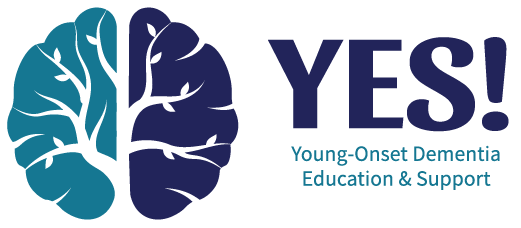By Dawn O’Meally, MSW, LCSW-C, P.A. www.tcc4change.com
Did you know that over 6 million Americans are currently suffering with Alzheimer’s Disease and Dementia? Sadly, medications have been largely ineffective in clinical trials leaving little hope for those affected once the diagnosis is made.
More and more emphasis is being placed on prevention of these dreaded brain diseases. While there is no definitive way to prevent Alzheimer’s disease, research is showing that some lifestyle factors may help reduce the risk or delay the onset of dementia. While not an exhaustive list, some of the possible prevention strategies include:
- Increasing physical activity: Regular exercise may help improve blood flow to the brain, reduce inflammation, and prevent conditions like diabetes and high blood pressure that are linked to cognitive decline. Obesity creates the ‘dinosaur syndrome’ according to Dr. Daniel Amen. The bigger the body becomes, the smaller the brain becomes. When it comes to size, the size of your brain matters A LOT! Walking is a good place to start with increasing your physical activity. Doing it with another person is even better as you are adding social interaction to the activity which is also protective against developing Dementia.
- Eating a healthy diet: Stay away from “ultra processed foods” such as cereal bars, hot dogs, and instant noodles typical of SAD (Standard American Diet). These foods may be convenient and may taste good but may speed cognitive decline due to all the additives in these processed foods. Start reading the labels and if you can’t pronounce the ingredients, don’t eat it. Check out the MIND Diet Cookbook. According to Claudia Suemoto, M.D., Ph.D., of the University of Sao Paulo Medical School in Brazil, “The Mediterranean-DASH Diet Intervention for Neurodegenerative Delay (MIND diet) has been linked to better cognitive performance and decreased risk of cognitive decline and dementia in several studies across the globe. The healthy foods included in the MIND diet are whole grains, leafy greens and other vegetables, nuts, beans, berries, poultry, fish and olive oil.” Nutrition and vitamin supplementation plays an important role in the brains’ neural pathways. Lacking Vitamin D, Vitamin B12, iron, and omega 3 fatty acids contribute to ‘brain fog. How can you expect your brain to function if you are depleted? Get your vitamin levels checked through a simple blood test which can be ordered through your PCP so you know where you stand. Get on a quality supplement that is certified for its quality and purity. Consult with your physician or an licensed RD about which supplements are right for you.
- Getting enough sleep: It can’t be said too many times how important sleep is for your brain health. During sleep, especially deep sleep, the brain clears out amyloid plaques, which are associated with Alzheimer’s disease. Visualize all the junk build up happening in your brain not getting cleared out from sleep. It’s not a surprise that poor sleep quality or quantity may impair memory and thinking skills. If you have Sleep Apnea, use your C-pap no ifs, ands, or buts. If you snore, wake up gasping for air, or have daytime sleepiness, ask your PCP to order a Sleep Study.
- Managing stress effectively: Chronic stress may have negative effects on the brain, such as shrinking the hippocampus (the memory center) and increasing inflammation. Stress management techniques like practicing mindfulness, meditation, yoga, breathing exercises, or hobbies may help lower stress levels and improve mood. Working with a coach and/or seeking counseling to help you learn strategies to cope with stress can be beneficial.
- Learning new things: Keeping your brain stimulated by learning new things may help keep it active and resilient. Activities like reading, learning a new language or skill, playing games like sudoku and doing crossword puzzles (aka “mental gymnastics”), learning a foreign language or musical instrument, drawing, painting, or taking a course may challenge and enhance cognitive abilities. There are many APPS and games available to challenge your brain like Lumosity.
- Get connected with other people: We are wired for connection with others! Social interaction may help prevent isolation and depression, which are risk factors for cognitive decline. Having meaningful relationships, joining clubs or groups, volunteering, or staying in touch with friends and family may provide social support and social stimulation.
- Heathy Heart/Healthy Brain: Have you heard that what is good for your heart is likely good for your brain? “The brain is the most highly vascularized organ in the body,” says Percy Griffin, Ph.D., M.Sc., director of Scientific Engagement at the Alzheimer’s Association. Stop smoking tobacco and limit alcohol for a healthy heart and brain. Excessive drinking is a major risk factor for dementia. Get your blood pressure and cholesterol under control.
- Get your A1-C under control: More and more, Alzheimer’s Disease is being referred to as Type 3 Diabetes. This makes sense as Diabetes causes inflammation everywhere, including your brain! Inflammation is a key contributor to Alzheimer’s risk.
- Good oral health may help protect against Alzheimer’s Disease: Flossing and brushing your teeth is not only good in preventing heart disease but is also good for your brain. According to Harvard Health, “Scientists have previously found that a species of bacteria, called Porphyromonas gingivalis, can move from the mouth to the brain. Once in the brain, the bacteria release enzymes called gingipains that can destroy nerve cells, which in turn can lead to memory loss and eventually Alzheimer’s.”
We need to think differently about brain health and do our part in preventing or slowing down cognitive issues like Alzheimer’s disease or Dementia from developing. According to Dr. Tom O’Bryan, researcher, and author of You Can Fix Your Brain, changes in the brain can begin occurring up to 20 years or more before mild cognitive impairment (MCI) type symptoms such as short-term memory loss begin to manifest on the path to full blown Alzheimer’s Disease. That means you can be walking around for a long time with brain changes occurring without realizing it until the initial symptoms show up. Unlike mammograms that are done on a yearly basis, there are no routine or yearly brain imaging tests like MRI’s or PET Scans being done to evaluate brain health status as these tests are costly. Our best bet goes back to PREVENTION – the earlier in life the better. It’s never too late, however, to get started on making the brain healthy lifestyle changes mentioned in this article.





